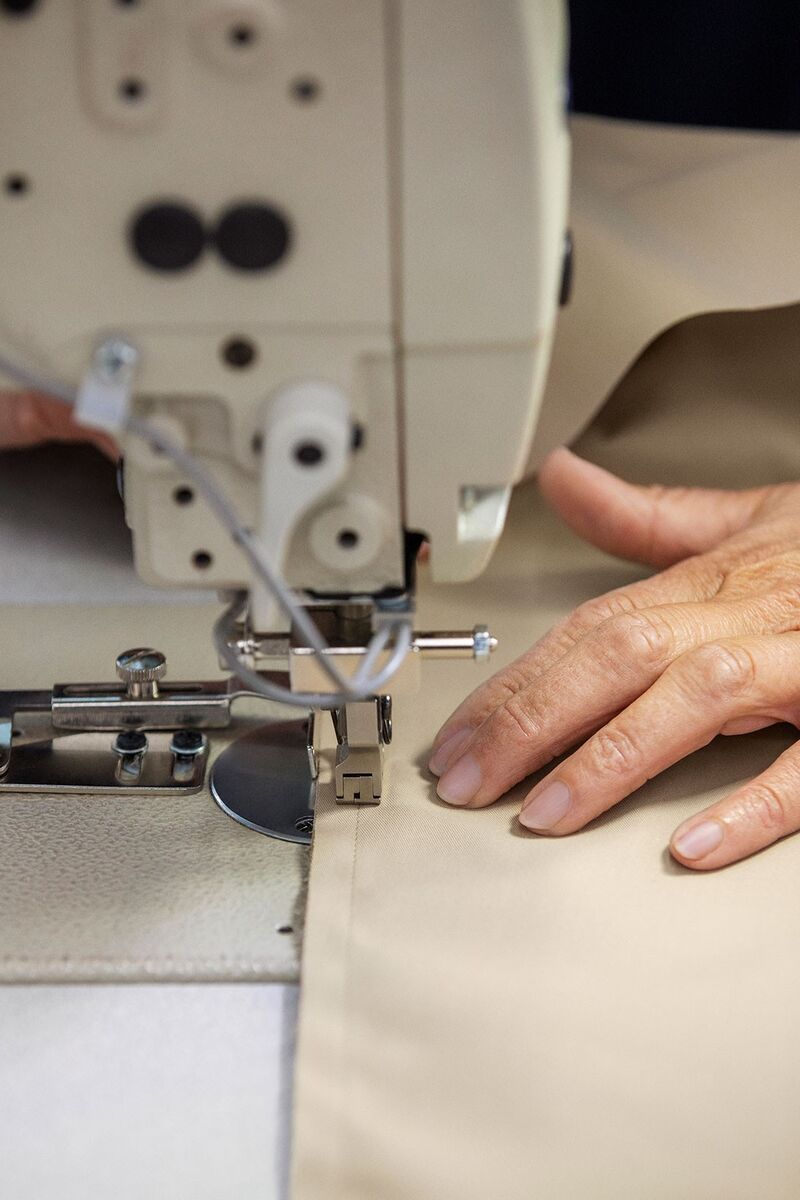Burberry's New Initiative Donates Leftover Fabric to Students
Ellen Smith — December 9, 2020 — Art & Design
References: britishfashioncouncil & hypebae
The high fashion industry is notorious for two things: being inaccessible to most consumers, and excessive fabric waste -- Burberry's new initiative is planning on changing that by donating its leftover fabric to fashion students throughout the United Kingdom.
Not only does this provide rising talent with the tools they need to thrive and grow, but it provides young artists with the opportunity to work with high-end materials they might not have otherwise been able to afford. At the same time, the mutually beneficial initiative is sustainable, and demonstrates a positive change for the industry. In a statement from Pam Batty, Burberry’s VP of Corporate Responsibility, “Providing resources for [students] in a sustainable way will enable them to bring their creativity to life, and continue through their programs with the tools they need”.
Image Credit: Burberry
Not only does this provide rising talent with the tools they need to thrive and grow, but it provides young artists with the opportunity to work with high-end materials they might not have otherwise been able to afford. At the same time, the mutually beneficial initiative is sustainable, and demonstrates a positive change for the industry. In a statement from Pam Batty, Burberry’s VP of Corporate Responsibility, “Providing resources for [students] in a sustainable way will enable them to bring their creativity to life, and continue through their programs with the tools they need”.
Image Credit: Burberry
Trend Themes
1. Fashion Waste Reduction - Initiatives that focus on reducing fashion waste to support sustainability and young artists alike.
2. Supporting Rising Talent - Initiatives that provide resources to rising talent to ensure they have the tools they need to succeed and grow.
3. Sustainable Education - Efforts to provide sustainable resources to education programs to support creativity and resourcefulness.
Industry Implications
1. Fashion - The fashion industry can adopt strategies to reduce waste and support rising talent to be more sustainable and socially responsible.
2. Education - Education programs can prioritize sustainability by utilizing donated materials from companies to provide resources to students.
3. Textile Manufacturing - Textile manufacturing companies can support sustainability efforts by using leftover fabrics to create new products or donating them to education programs.
1.3
Score
Popularity
Activity
Freshness






















